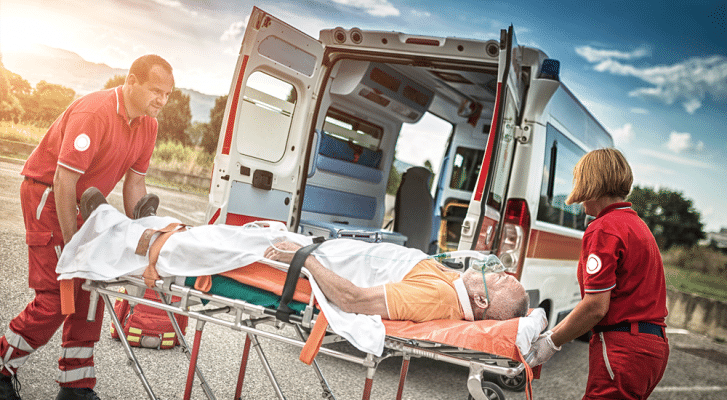
What Constitutes a Catastrophic Injury for Indianapolis Personal Injury Claims?

Traffic accidents, slip and fall accidents, dog attacks, product injuries, and other personal injury accidents can result in mild to catastrophic injuries. Catastrophic injuries are usually defined as injuries that result in permanent disabilities or life-threatening conditions. A catastrophic injury can change the life of the victim and the lives of the victim’s family members forever.
Types of Catastrophic Injuries
Injuries that fall within the category of a catastrophic injury include:
- Spinal cord injuries
- Paralysis
- Traumatic Brain Injury (TBI)
- Amputation
- Severe Burns
- Loss of an internal organ or function of an internal organ
- Loss of senses, including vision and hearing
In addition to certain injuries, the results of some injuries may also be defined as catastrophic. For instance, an injury that results in the permanent use of a cane or other walker could be described as catastrophic. A case of whiplash that permanent results in loss of range of motion or a concussion that results in chronic, ongoing pain may also be described as catastrophic.
Costs and Losses Associated with Catastrophic Injuries
Usually, injuries of this type require a long recovery period and may result in the person being unable to return to work permanently. For some individuals, an injury may prevent them from earning the same level of income that he or she did before the accident (loss of earning potential). In some cases, the person may require personal care and ongoing medical treatment because of the catastrophic injury.
A catastrophic injury can result in substantial financial losses and expenses, especially over a person’s lifetime. Insurance and disability benefits may help with expenses and losses, but a person who sustains a severe injury often experiences a change in living conditions and quality of life. This change can also cause severe emotional distress and mental anguish. PTSD, anxiety, depression, and other emotional disorders are common for individuals who suffer traumatic injuries from an accident.
Settlements for Accidents Involving Traumatic Injuries
Because of the losses and damages associated with a catastrophic injury, the settlements and jury verdicts in these cases tend to be much larger than a case involving a minor to moderate injury. However, an injury of this level does not guarantee a large settlement offer.
Injury victims must still prove that the accident was caused because of the negligence or wrongdoing of another party to recover compensation for catastrophic injuries. In addition, the person must have proof of the damages and losses associated with the accident and injury. Future and going losses and damages can be difficult to prove and often require expert witnesses to offer evidence of the anticipated losses and expenses a person is expected to incur over their lifetime because of catastrophic injuries.
Hiring an Experienced Truck Accident Attorney
An experienced Indianapolis catastrophic injury attorney can help you with a claim. An attorney who handles these types of claims understands the challenges involved in proving the cost of ongoing personal care and medical care in addition to the loss of income that you may incur during the rest of your life. The PBAR legal team has experience handling cases involving catastrophic injuries. You can trust that we will not give up fighting for full compensation of all damages associated with your accident and injury.
Contact Our Indianapolis Personal Injury Attorneys for a Free Case Review
To schedule a free consultation with an Indianapolis personal injury attorney in your area, contact Poynter & Bucheri by calling 1-800-265-9881 or (317) 780-8000.
